Publications
Articles, publications, books, tools and multimedia features from the U.S. Institute of Peace provide the latest news, analysis, research findings, practitioner guides and reports, all related to the conflict zones and issues that are at the center of the Institute’s work to prevent and reduce violent conflict.
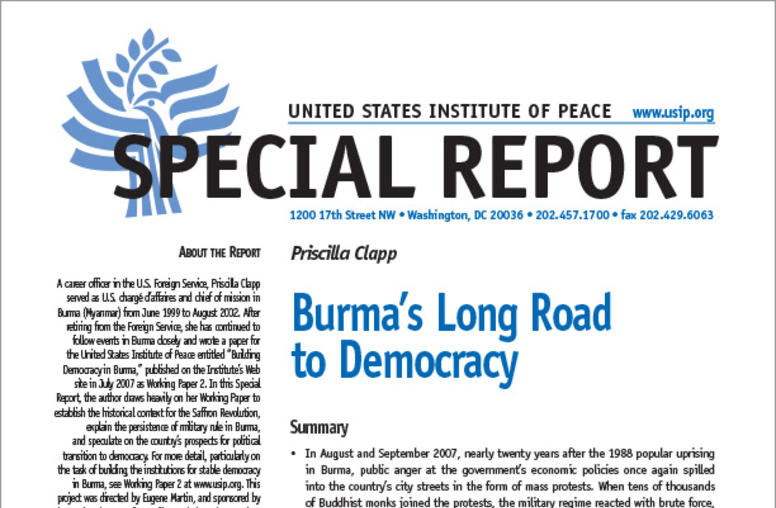
Burma's Long Road to Democracy
In this Special Report, the author establishes the historical context for the recent Saffron Revolution in Burma, explains the persistence of military rule, and speculates on the country’s prospects for political transition to democracy.
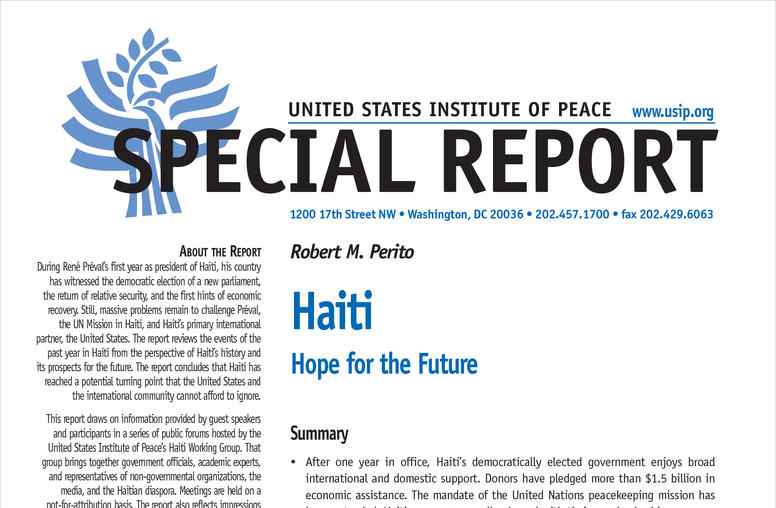
Haiti: Hope for the Future
Over the past year, Haiti has witnessed the democratic election of a new parliament, the return of relative security, and the first hints of economic recovery. Still, massive problems remain to challenge Haiti and Haiti’s primary international partner, the United States.
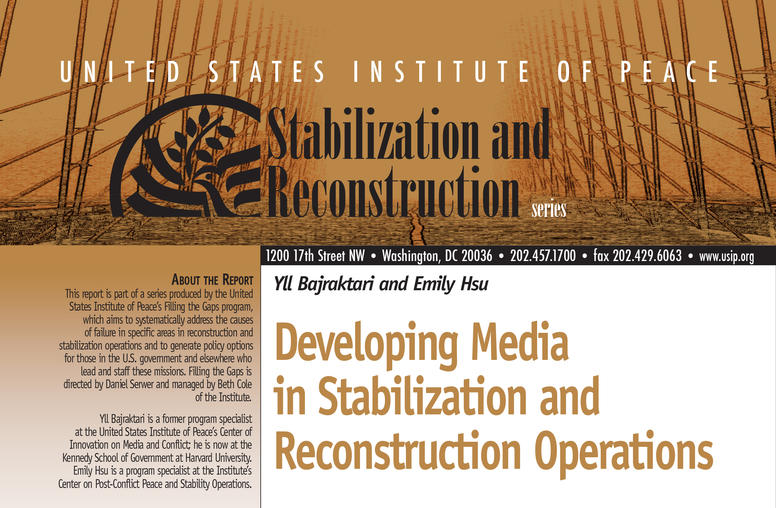
Developing Media in Stabilization and Reconstruction Operations
In war-torn societies, the development of independent, pluralistic, and sustainable media is critical to fostering long-term peace and stability. This report outlines a series of steps for generating a strategy for media development in post-conflict zones.
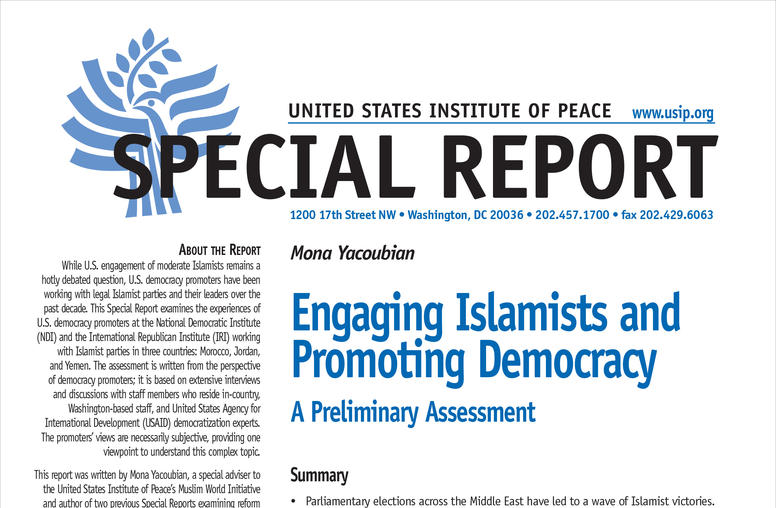
Engaging Islamists and Promoting Democracy: A Preliminary Assessment
While U.S. engagement of moderate Islamists remains a hotly debated question, U.S. democracy promoters have been working with legal Islamist parties and their leaders over the past decade. This Special Report examines the experiences of U.S. democracy promoters at the National Democratic Institute (NDI) and the International Republican Institute (IRI) working with Islamist parties in three countries: Morocco, Jordan, and Yemen.
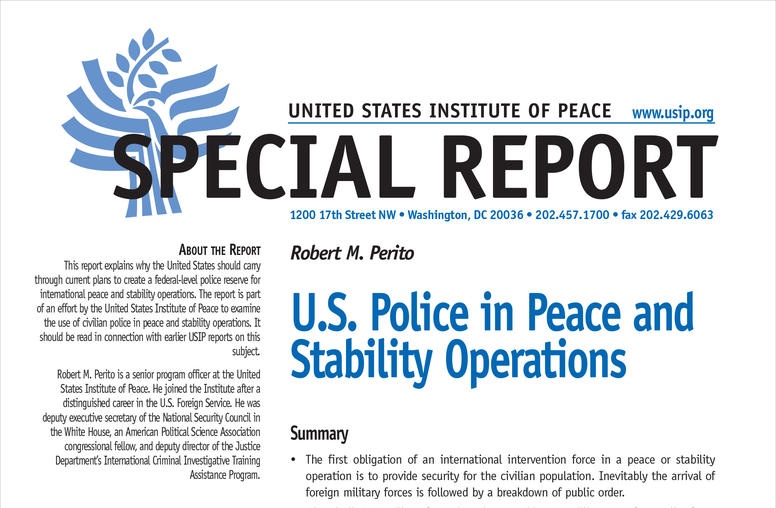
U.S. Police in Peace and Stability Operations
The first obligation of an international intervention force in a peace or stability operation is to provide security for the civilian population. Inevitably the arrival of foreign military forces is followed by a breakdown of public order. The United States should carry through plans to create a federal-level police reserve for international police and stability operations.
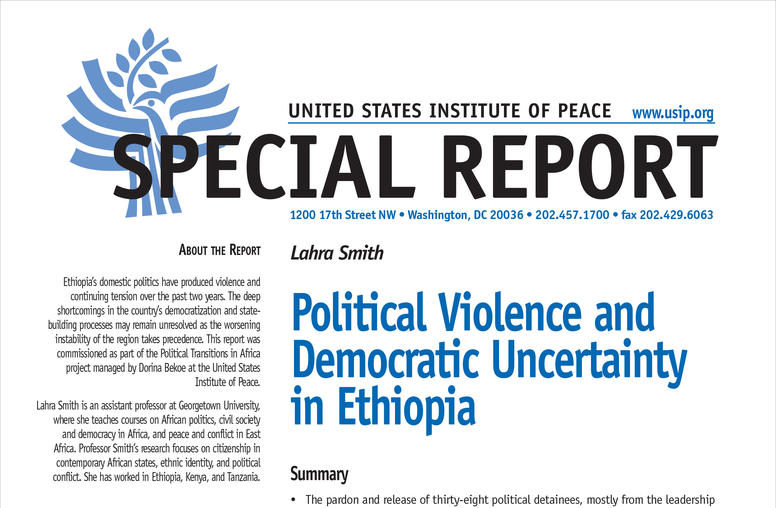
Political Violence and Democratic Uncertainty in Ethiopia
Ethiopia’s domestic politics have produced violence and continuing tension over the past two years. The deep shortcomings in the country’s democratization and state-building processes may remain unresolved as the worsening instability of the region takes precedence.
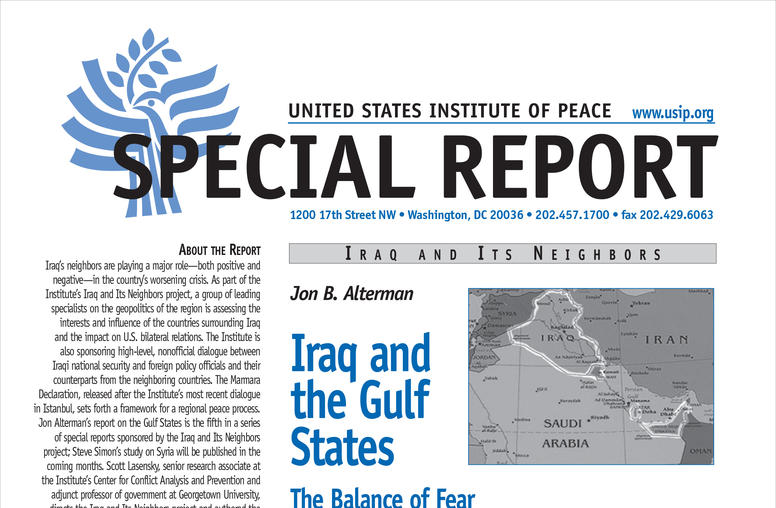
Iraq and the Gulf States: The Balance of Fear
Iraq’s Persian Gulf neighbors supported the U.S. invasion of Iraq in order to preserve the status quo--a weak and self-absorbed Iraq--rather than to impose a new one. However, the overthrow of Saddam Hussein and its aftermath have not brought stability to the Gulf States as much as they have shifted the most serious challenges from external threats (of a hostile Baghdad) to internal threats (the threat of conflict spillover from Iraq).
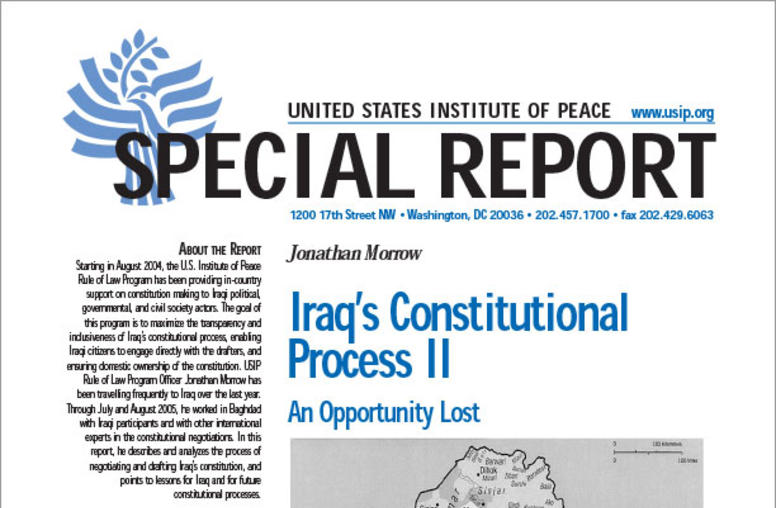
Iraq's Constitutional Process II: An Opportunity Lost
Summary Even with the approval of a permanent constitution in the October national referendum, Iraq’s future is uncertain. Widespread Sunni Arab opposition to the new constitution has confirmed the existence of a fault line that profoundly divides Iraqi society. The Transitional Authoritative Law (TAL) envisaged a six-and-a-half-month, transparent, participatory, and orderly constitutional process. The TAL also provided the option, in Article 61(F), of a further six-month extension....
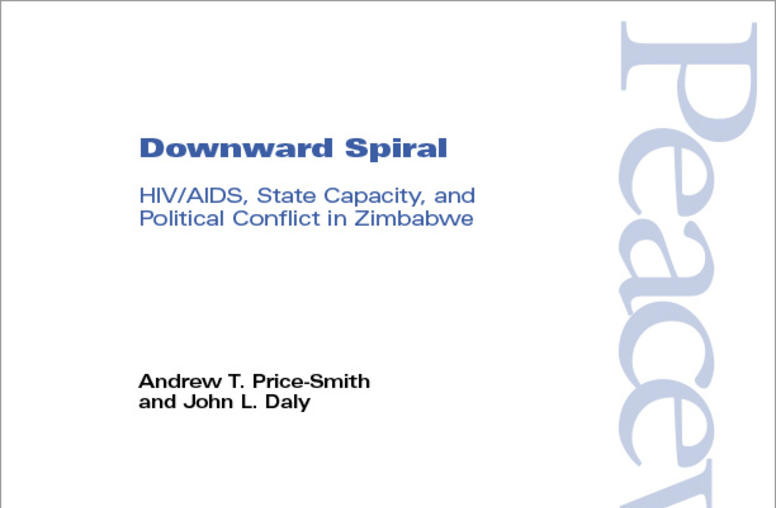
Downward Spiral: HIV/AIDS, State Capacity, and Political Conflict in Zimbabwe
In the post-Cold War era, diverse new threats to long-term global political and economic stability have emerged. Such threats include terrorist activities, the proliferation of nuclear technologies and delivery systems, and biological threats that include both bioweapons and naturally occurring epidemic diseases such as HIV/AIDS.
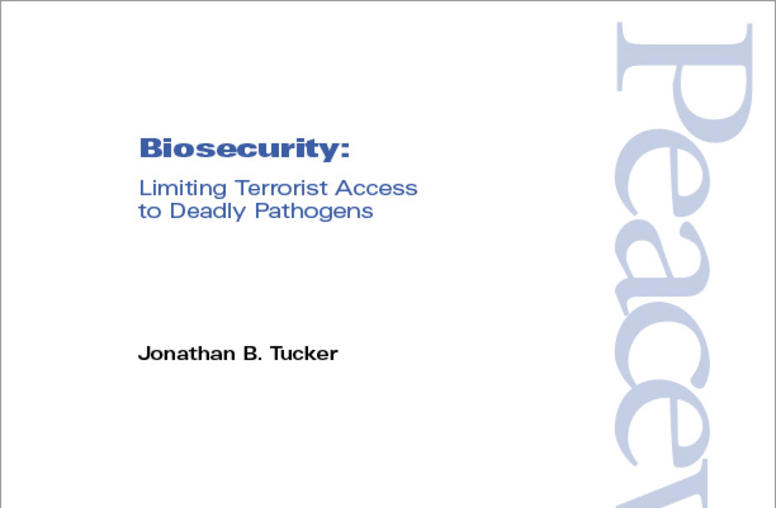
Biosecurity: Limiting Terrorist Access to Deadly Pathogens
In this Peaceworks report, current national and international efforts to prevent terrorists from acquiring dangerous pathogens and argues for the establishment of a set of global biosecurity standards are explored.